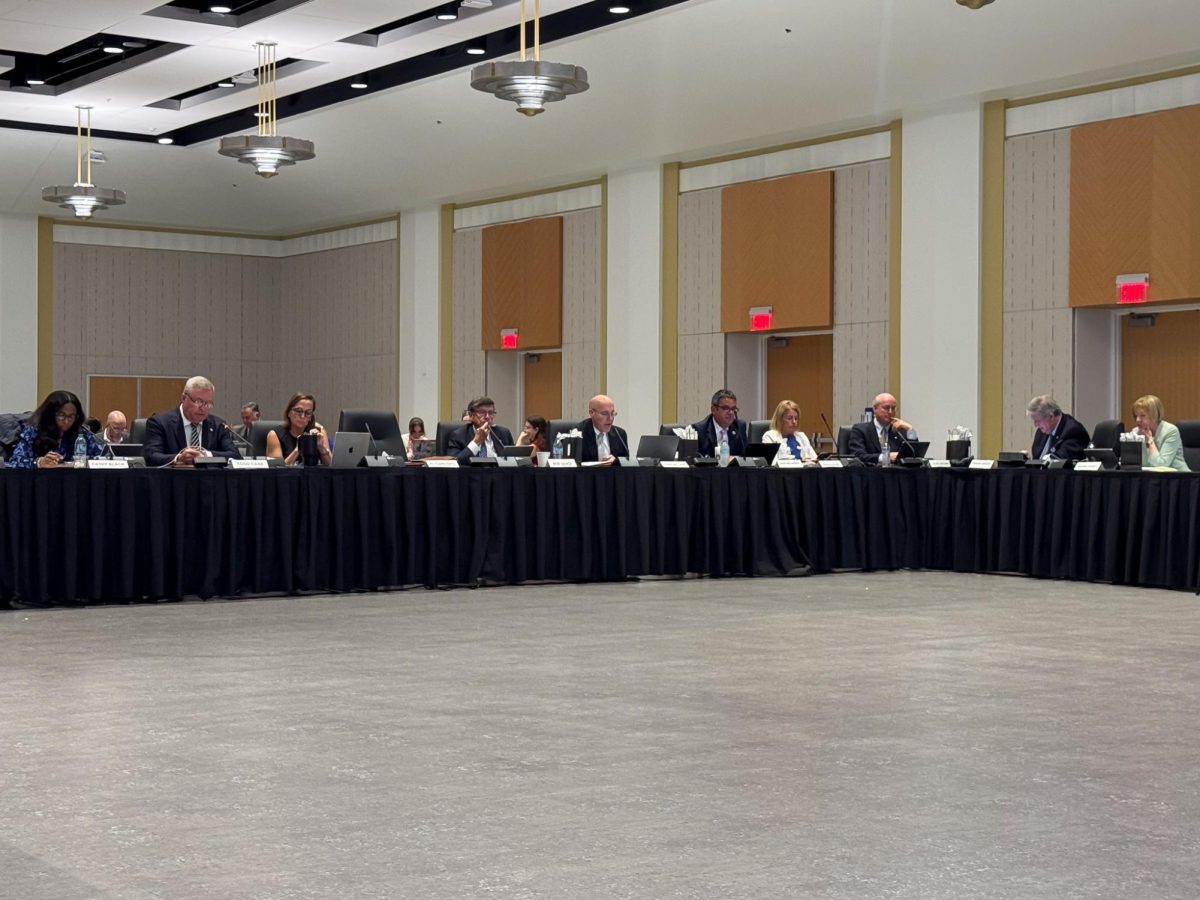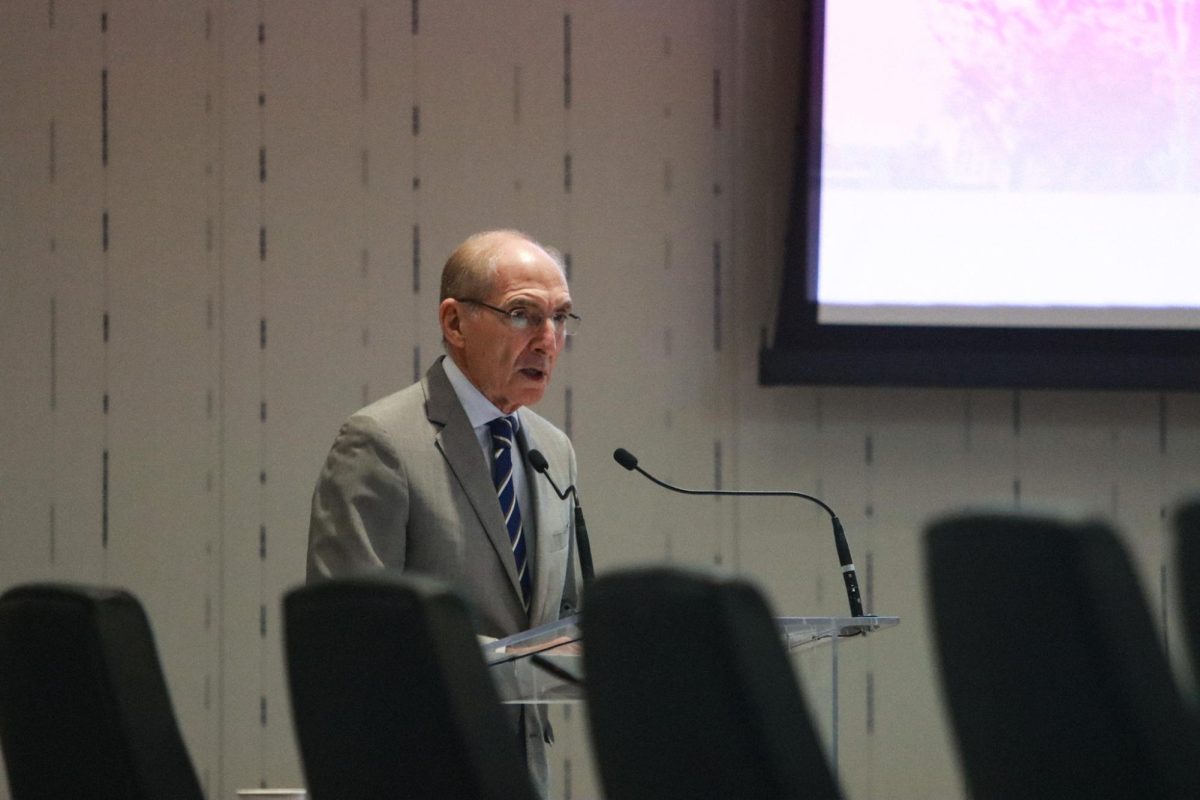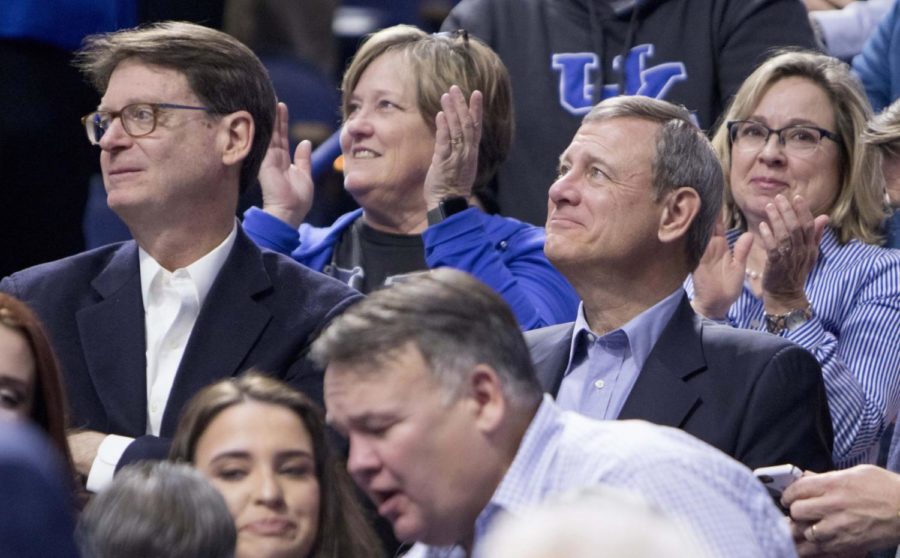Roberts knows his Kentucky Supreme Court history
February 2, 2017
While President Donald Trump announced his Supreme Court appointment Tuesday night, the 17th Chief Justice of the Supreme Court John G. Roberts, Jr. was watching the Wildcats break a losing streak against Georgia.
The next morning, Roberts was the inaugural speaker of the John G. Heyburn II Initiative for Excellence in the Federal Judiciary, an education program “devoted to the preservation and study of U.S. Judicial history.” Roberts was invited by Senate Majority Leader Mitch McConnell, a friend of the late federal judge John G. Heyburn II of Louisville.
The Chief Justice’s appearance was preceded by a panel of speakers on the topic of judicial courage. University of Michigan political science professor Pamela Brandwein, Judge Jeremy D. Fogel and Chief Judge Carl E. Stewart discussed what current and future lawyers and judges could learn from past judges who had exemplified judicial courage, and what we could learn from them now.
“Years ago, the thought might have been that ‘oh, we’ll do a few securities cases, etc.’ Who knew that the social upheaval outside would bring these cases into the courts,” Judge Stewart said.
The Chief Justice, an appointee of President George W. Bush, began with a presentation on the trend of Supreme Court justices with Kentucky roots who served almost sequentially for over 140 years between 1807 and 1953. Anecdotes included the first justice to fill the seventh seat of the Court Thomas Todd, the “Great Dissenter” Justice John Marshall Harlan and “the People’s Lawyer” Louis Brandeis, who held the highest GPA on record at Harvard Law for several decades.
Most notably was the brief tenure of the only Chief Justice from Kentucky, Frederick Moore Vinson, who also served as House representative, on the Court of Appeals for the DC Circuit and as the Secretary of Treasury, signing a select number of five dollar bills.
Director of the Administrative Office of the U.S. Courts Jim Duff interviewed Chief Justice Roberts at the presentation. Duff also has Kentucky roots as a former UK basketball player on the 1971-1972 freshman men’s team. Duff steered clear of controversial topics, including the assumed rejection of President Barack Obama’s Supreme Court appointee Merrick Garland and President Trump’s recent nomination of Neil Gorsuch.
Roberts discussed his tenure as a clerk for former Chief Justice William Rehnquist, as well as his current responsibilities as Chancellor of the Smithsonian Board of Regents and his promotion of collegiality among justices.
“We’re almost a $4 billion organization, so we cost a little bit less than one aircraft carrier. And you get a whole branch of government for it.”
Nearly a year after the death of Justice Antonin Scalia, Roberts noted the difficulty of working on a panel of eight justices without a ninth to swing big cases.
“We had to try a little harder to find common ground,” Roberts said.






























































































































































